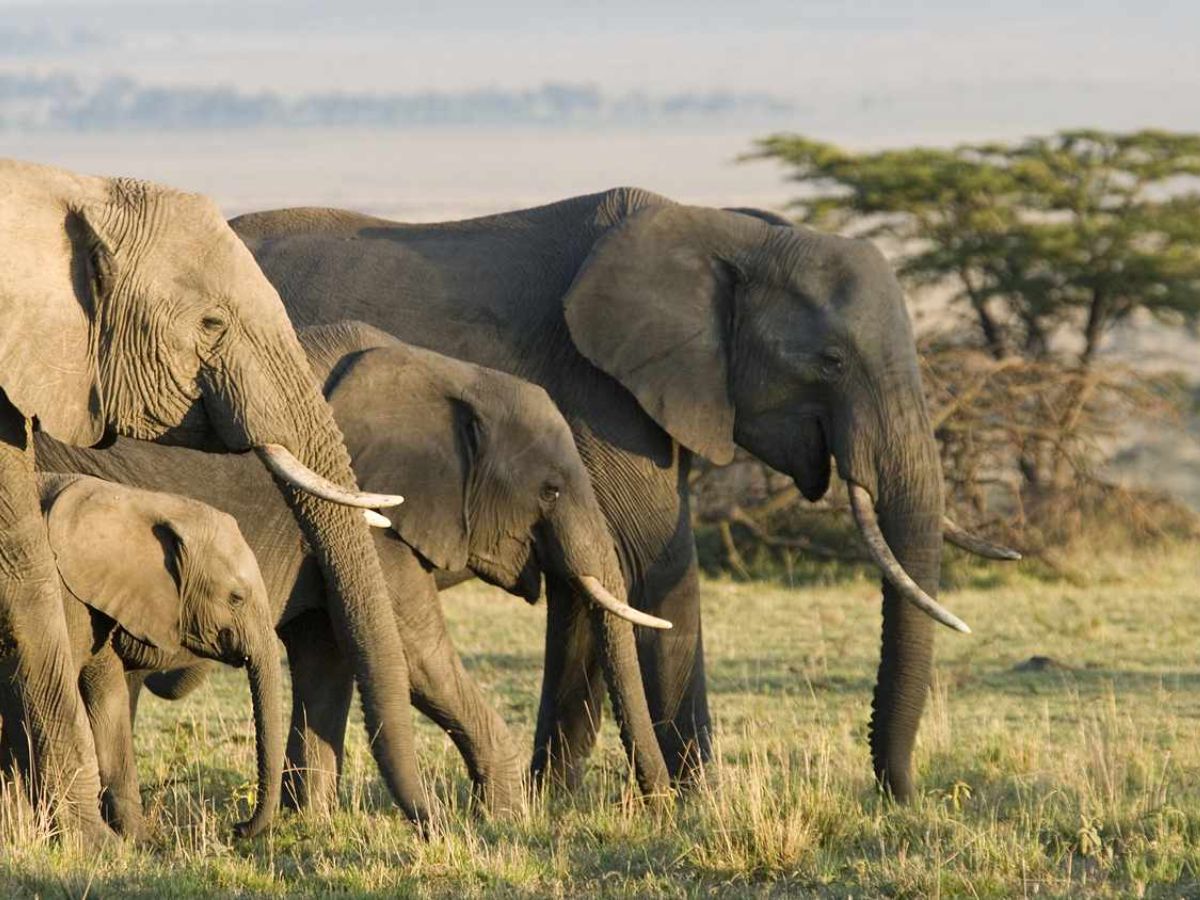
Elephants are some of the most fascinating creatures on Earth, and their teeth are no exception. Did you know that elephants have a unique dental structure that sets them apart from other animals? Elephants don't just have one set of teeth; they actually go through six sets in their lifetime! These gentle giants rely heavily on their teeth for survival, using them to strip bark from trees, chew tough vegetation, and even dig for water. Understanding the intricacies of elephants' teeth can give us a deeper appreciation for these majestic animals and their incredible adaptations. Let's dive into some amazing facts about elephants' teeth that will leave you in awe!
Elephants Have Unique Teeth
Elephants are fascinating creatures, and their teeth are no exception. These gentle giants have some of the most interesting dental features in the animal kingdom. Let's dive into some amazing facts about elephant teeth.
-
Elephants have four molars at any given time. Each molar can weigh up to 5 pounds and measure about 12 inches long.
-
Unlike humans, elephants go through six sets of molars in their lifetime. As one set wears down, another set moves forward to replace it.
-
An elephant's molars are not like human teeth. They have ridges that help grind down tough vegetation, making it easier for the elephant to digest its food.
Tusks Are Modified Teeth
Elephant tusks are actually elongated incisor teeth. These impressive structures serve multiple purposes and are essential to an elephant's survival.
-
Tusks can grow up to 10 feet long and weigh as much as 200 pounds. They continue to grow throughout an elephant's life.
-
Elephants use their tusks for various tasks, such as digging for water, stripping bark from trees, and even as weapons during fights.
-
Both male and female African elephants have tusks, but in Asian elephants, typically only males have them.
Teeth Reveal Age and Health
An elephant's teeth can tell a lot about its age and overall health. By examining their teeth, researchers can gather valuable information about these magnificent animals.
-
The wear and tear on an elephant's molars can indicate its age. Older elephants have more worn-down teeth compared to younger ones.
-
Healthy teeth are crucial for an elephant's survival. If an elephant's teeth become too worn down, it can struggle to eat, leading to malnutrition and even death.
-
Elephants in captivity often have better dental health than those in the wild. This is because they receive regular dental care and a balanced diet.
Teeth and Social Behavior
Elephant teeth play a role in their social interactions and behaviors. These majestic animals use their teeth in various ways to communicate and interact with one another.
-
Elephants sometimes use their tusks to show dominance. Larger tusks can be a sign of strength and social status within the herd.
-
During play, young elephants often use their tusks and trunks to engage with each other. This helps them develop important social skills.
-
Elephants also use their tusks to help other members of their herd. For example, they may use their tusks to lift a fallen calf or assist an injured elephant.
Conservation and Protection
Elephant teeth, particularly tusks, have made these animals targets for poaching. Conservation efforts are crucial to protect elephants and their unique dental features.
- The illegal ivory trade has led to a significant decline in elephant populations. Conservationists are working tirelessly to combat poaching and protect these majestic creatures.
Elephants are truly remarkable animals, and their teeth are just one of the many fascinating aspects of their biology. By understanding more about their teeth, we can better appreciate and protect these gentle giants.
The Final Word on Elephant Teeth
Elephant teeth are fascinating. These gentle giants have unique dental structures that play a crucial role in their survival. With six sets of molars throughout their lives, elephants can chew through tough vegetation. Their tusks, which are actually elongated incisors, serve multiple purposes, from digging for water to defending against predators.
Understanding these facts about elephant teeth helps us appreciate these magnificent creatures even more. It also highlights the importance of conservation efforts to protect their habitats and ensure their survival. Next time you see an elephant, remember the incredible journey its teeth have taken. From grinding down food to growing new sets, these teeth are a testament to the resilience and adaptability of elephants. So, let's continue to learn and share these amazing facts, ensuring that future generations can marvel at the wonders of elephant teeth.
Was this page helpful?
Our commitment to delivering trustworthy and engaging content is at the heart of what we do. Each fact on our site is contributed by real users like you, bringing a wealth of diverse insights and information. To ensure the highest standards of accuracy and reliability, our dedicated editors meticulously review each submission. This process guarantees that the facts we share are not only fascinating but also credible. Trust in our commitment to quality and authenticity as you explore and learn with us.


